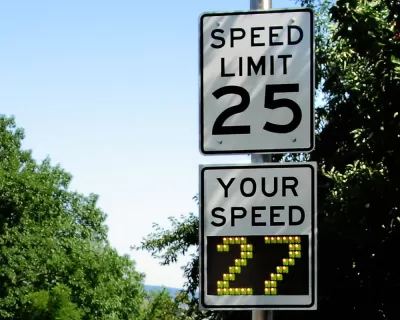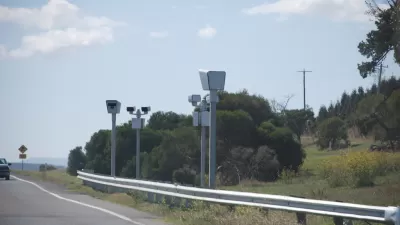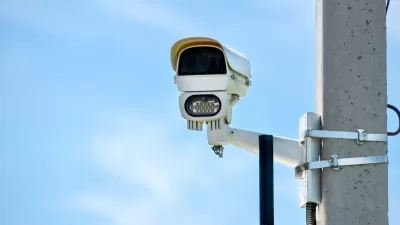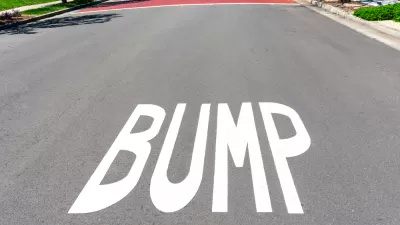The state of Virginia's new traffic safety program will focus on speeding as fatal factor in automobile collisions and could eventually provide a model for similar programs around the country.

"To reduce the danger of driving, Virginia state officials are now planning a new comprehensive road safety campaign to slow down drivers," reports Wyatt Gordon. "However, controversies around equitable enforcement and the political unpopularity of speeding cameras means [sic] that no one can say at the moment what the final program will look like when details are debuted this fall."
"The coming anti-speeding pilot program represents a multi-state, multi-organization effort in cooperation with Maryland, the Governors Highway Safety Association, the Insurance Institute for Highway Safety and the National Road Safety Foundation," adds Gordon.
Russ Rader, senior vice president for communications at the IIHS, is quoted in the article discussing the neglected factor of speed in addressing traffic safety. The new program is intended as a response to calls from advocates to address the elephant in the traffic safety room.
According to Gordon, the program will focus on three "Es"—enforcement, education and engineering—and will "build on the success of the Click It or Ticket campaign that coincided with a national 20 percent increase in seat belt usage over a 16-year period."
The program will also be a chance to innovate in its approach to equity—with the new attention paid to disproportionate impacts of traffic enforcement for BIPOC Americans during the pandemic. According to Gordon's explanation automated speed enforcement might be proposed as a solution to the tendency of police to target BIPOC with higher and more violent levels of enforcement. Automated speed enforcement is usually controversial and is also outright banned by many state and local governments. The case for automated technology also isn't as universally accepted as a tool to reduce discrimination as one might assume.
John Saunders, DMV’s director of highway safety, is quoted in the article saying the program could respond to controversies surrounding automated traffic safety technology by placing new priority on "safety systems."
"We need to do everything we can to protect the driver and other vulnerable road users because folks are always going to make mistakes," says Saunders in the article.
FULL STORY: Virginia aims to slow down drivers. Will it work?

Planetizen Federal Action Tracker
A weekly monitor of how Trump’s orders and actions are impacting planners and planning in America.

Maui's Vacation Rental Debate Turns Ugly
Verbal attacks, misinformation campaigns and fistfights plague a high-stakes debate to convert thousands of vacation rentals into long-term housing.

San Francisco Suspends Traffic Calming Amidst Record Deaths
Citing “a challenging fiscal landscape,” the city will cease the program on the heels of 42 traffic deaths, including 24 pedestrians.

Amtrak Rolls Out New Orleans to Alabama “Mardi Gras” Train
The new service will operate morning and evening departures between Mobile and New Orleans.

The Subversive Car-Free Guide to Trump's Great American Road Trip
Car-free ways to access Chicagoland’s best tourist attractions.

San Antonio and Austin are Fusing Into one Massive Megaregion
The region spanning the two central Texas cities is growing fast, posing challenges for local infrastructure and water supplies.
Urban Design for Planners 1: Software Tools
This six-course series explores essential urban design concepts using open source software and equips planners with the tools they need to participate fully in the urban design process.
Planning for Universal Design
Learn the tools for implementing Universal Design in planning regulations.
Heyer Gruel & Associates PA
JM Goldson LLC
Custer County Colorado
City of Camden Redevelopment Agency
City of Astoria
Transportation Research & Education Center (TREC) at Portland State University
Jefferson Parish Government
Camden Redevelopment Agency
City of Claremont





























